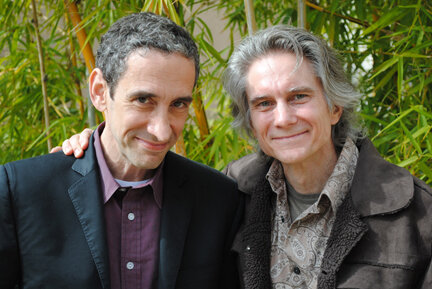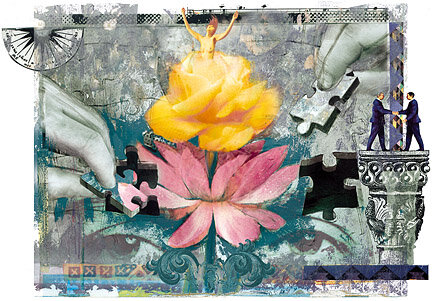I am honored to have Douglas Rushkoff answer a few questions about artist empowerment, sustainability, and living inside or outside the corporate model. Rushkoff is one of today’s most engaging and perceptive commentators on the impact of technology and media on organizations and society. A globally recognized thought leader on marketing and Internet culture, he explores how communications affect our lives. Rushkoff is a professor of virtual culture at New York University.Roxana came across Rushkoff on an Etsy speaker series and suggested I might like to hear him. I immediately felt a kindred spirit. Here was an individual who understood how the box of corporate culture really stifled much of the entrepreneurial spirit in people. Artist's became locked into this system too. It is time to wake up and throw off those shackles.Rushkoff is a social media master. His ten best-selling books on new media and popular culture have been translated to over thirty languages. They include Cyberia, Media Virus, Playing the Future, Nothing Sacred: The Truth about Judaism, Get Back in the Box: Innovation from the Inside Out and Coercion, winner of the Marshall Mcluhan Award for best media book. Rushkoff also wrote the acclaimed novels Ecstasy Club and Exit Strategy and graphic novel, Club Zero-G. He wrote a series of graphic novels for Vertigo called Testament, and is currently working on another book for Vertigo as well as a new series of graphic novels for Smoking Gun Interactive.His latest book,Life Inc.: How the World Became a Corporation and How to Take It Back, is an astute examination of the moment in history that currency was centralized and society moved away from local trade and bartering. He demonstrates how corporate culture has literally changed human values and profoundly altered the way we now relate to one another.This Friday and Saturday, April 16-17 at the Newport Public Library he will be presenting one of his dynamic lectures. I will be there Saturday. Come join me!Rushkoff was gracious enough to answer a few questions about some issues I believe are important to all artists. This is an opportunity to comment and possibly start a dialogue with him about how the world of commerce is changing as well as your opportunities in it. So jump in there.GREG SPALENKA: In your national best seller Life Inc. you talk about the how the corporate world reduced an individuals self worth. Artists like to think that they are not part of an industry, but the gallery system and the blue chip elite in particular has its own rules and regulations. How would you define artist empowerment?DOUGLAS RUSHKOFF: Honestly, empowerment for an artist is probably the ability to which s/he can work independently of the marketplace. An artisan can always look at what is useful in the short-term, and just sell a pretty teapot or t-shirt. But an artist usually needs to think in longer cycles, and this might mean creating work that isn't deemed valuable by the marketplace for a decade or more - especially if the work is critical of the status quo. Most people don't want to spend money undermining their world view.So empowerment either comes when the artist can generate enough income regardless of market considerations - or when the artist can learn to live without constant income and recognition. It's not necessarily an easy life, but many poor artists are more empowered than wealthy sellouts.GREG SPALENKA: Most colleges and universities teach art making skill sets with an eye on preparing artists for the publishing, gallery, and entertainment industries. What would be your suggestions for artists graduating with this mind set and do you feel its sustainable?DOUGLAS RUSHKOFF: You mean for artists who decide to become commercial designers instead? Nothing wrong with that, but it's not one's real work. It's no different from an artist working as a bookkeeper or bed salesman. Whatever pays the bills. In some ways, it's harder when you use your craft for some corporate purpose, because you can fool yourself into thinking you're a working artist, when you're really just an artist, working.On the other hand, if you keep the extra work related to your artistic field, use it as zen training. I know great painters who worked their days or nights as scenic artists on soap operas. So they still work their technique, their brush strokes, their perspective tricks, all day long. And then they do their real work when they've got the time. But at least the commercial work isn't so much about conceiving ad campaigns or packaging, and much more about flow.GREG SPALENKA: I stress in my Artist As Brand™ workshops the importance of creating a solid fan and patron base over time, hence creating multiple streams of income. Are artists better off handling fluctuating economic factors inside or outside the corporate system?DOUGLAS RUSHKOFF: Diversify.Thank you Douglas, for your insightful answers! I have some questions around a few of your answers which I will place in the comments. I look forward to your presentation in Newport Beach. I hope to see some of my creative colleagues there too.In Life,Greg
***FOLLOW UP***



